Discover Dublin The Ultimate City Guide


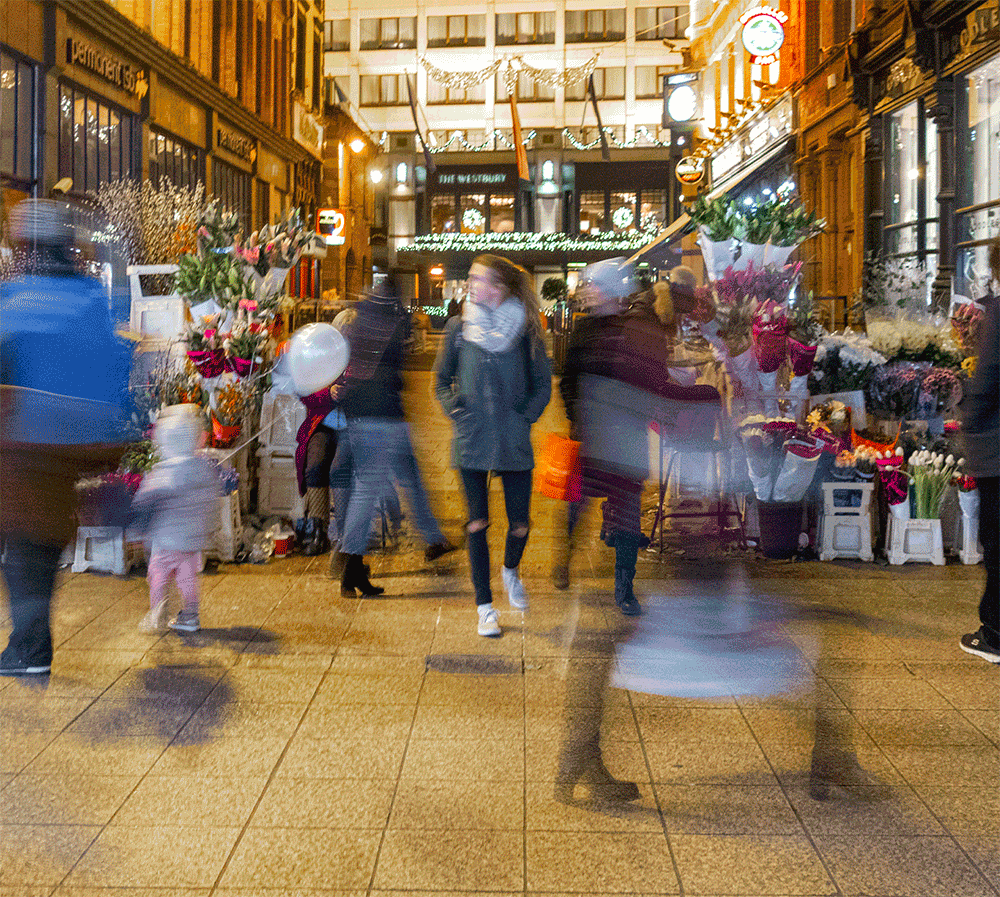
Dublin is a city where you’ll find old-world charm mixed with the energy and vibrancy of a cosmopolitan European capital. The city’s historic buildings, churches and pubs are mixed in with gleaming offices and apartments, hip hotels, cool cafés, and buzzing night spots, and the city’s friendliness and diversity makes it a great place to study.
Dublin is on Ireland’s east coast and the population is around 500,000 (with around 1.35 million in the county), and while it has some aspects of a large city like traffic, it is very manageable to live in, and easy to get around the city center on foot.
Dubliners are known for their friendliness and warm welcome. People are helpful and will talk to anyone – and you will even hear them thanking the bus driver.
“Dublin exceeded my expectations. I’ve never seen a more lovely city and the people are so hospitable. Despite coming from the US and being from a very different background, I felt home, I felt like it was my family. For demanding subjects like medicine, it’s important for your wellbeing and your mind to be at ease, and Dublin is good for that.”
Sarah Alshamery, USA,
Medical student at the Royal College of Surgeons in Ireland.
Dublin is a student city – as well as the four universities, Trinity College, University College Dublin (UCD), Dublin City University (DCU) and Technological University (TU Dublin), there are numerous prestigious academic institutions such as the Royal College of Surgeons in Ireland (RCSI), the National College of Art and Design (NCAD) and the Royal Irish Academy of Music. It is an international city which every year welcomes students from more than 120 countries.
For medical students, each campus is well equipped and well located – Trinity and UCD both have their own grounds, while RCSI is adjacent to St Stephen’s Green, and all have well developed facilities and student health services.
“Not only has it been a great experience thus far, it has also been amazing to be living in such a beautiful country. Ireland captivates you with its beauty and history. There are so many wonderful places to explore whether you hop on the Dart to go to Howth for the day, or take a weekend trip to Belfast.”
Alicia Ryan, Canada,
Medical student at Trinity College Dublin.
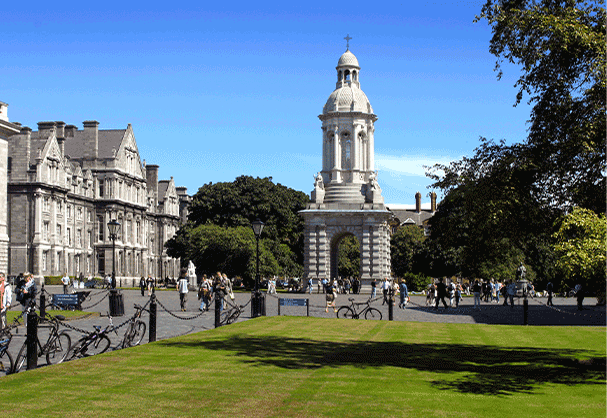
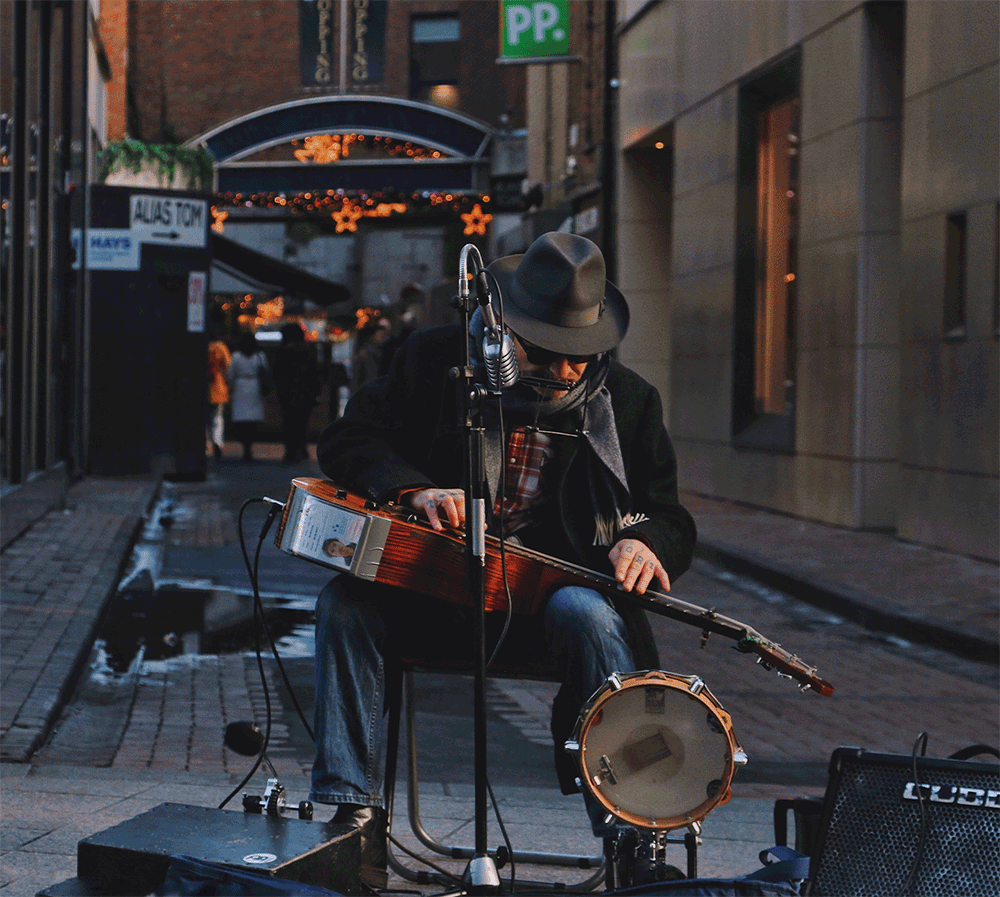
Dublin is full of history and culture – whether you delve into the museums and galleries or trace the history from Viking walls to grand Georgian townhouses. Sometimes it’s just the haunting music from a busker on Grafton Street that will touch your soul.
The city has produced literary greats like James Joyce, Oscar Wilde, WB Yeats, George Bernard Shaw and Samuel Beckett. There are plenty of theaters too – like The Abbey and The Gate, or the Bord Gáis Energy Theatre for musical shows.
Galleries include the National Gallery, RHA and Hugh Lane, and museums cover everything from emigration and literature to GAA sport. Dublin has a great line-up of festivals including the Dublin Theatre festival, St Patrick’s Day, Dublin Pride and Tradfest.
Dublin is a multicultural city. It welcomes thousands of tourists and business visitors and is the location of the European headquarters of some of the world’s biggest tech companies. There is a lot in the city that will enhance your medical studies too – whether its 300-year old library books or a robotic respiratory simulator exhibit at the Science Gallery. Dublin has made many contributions to medicine and science and in 2015, a Trinity graduate won the Nobel Prize in Medicine for discovering a new drug to treat river blindness.
“Dublin as a city was certainly a change of pace from the smaller towns I had been used to, but it has become as much of a home to me as anywhere in the U.S. Though things like finding the right housing accommodation was a demanding test of will and determination, the overall day-to-day of life in Ireland is spectacular. It’s the simple things for me that really make it special, like listening to buskers on Grafton street at the weekend or spending an afternoon with friends in the gorgeous St. Stephen’s Green park. So far I’ve been able to see several gigs by my favorite bands and I even had the pleasure to meet my favorite author recently. There’s a great nightlife as well, and overall, there really is always something to do no matter your mood or disposition.”
Cody Waters, USA,
Physiotherapy student at University College Dublin.
Joining college sports clubs and societies is a great way to learn new skills and make friends. All types of sports are included from water sports to martial arts. Societies cover the arts, music, politics and drama as well as student societies by country and some unusual clubs – UCD has a Harry Potter Society and a Juggling Society, TCD has a Comedy Society and a Horse Racing Society, and RCSI has societies for many medical specialties plus an Animal Welfare Society.
“I know academics is the main priority but the social aspect of the program is also important because when you are away from your family, the friends you make over here become your family. At Trinity, there is no shortage of school events whether it be Trinity events or Dental Hospital events, through which I have met some great people that will probably be apart of my life forever.”
Lindsay Aiello, Canada,
Dental student at Trinity College Dublin.

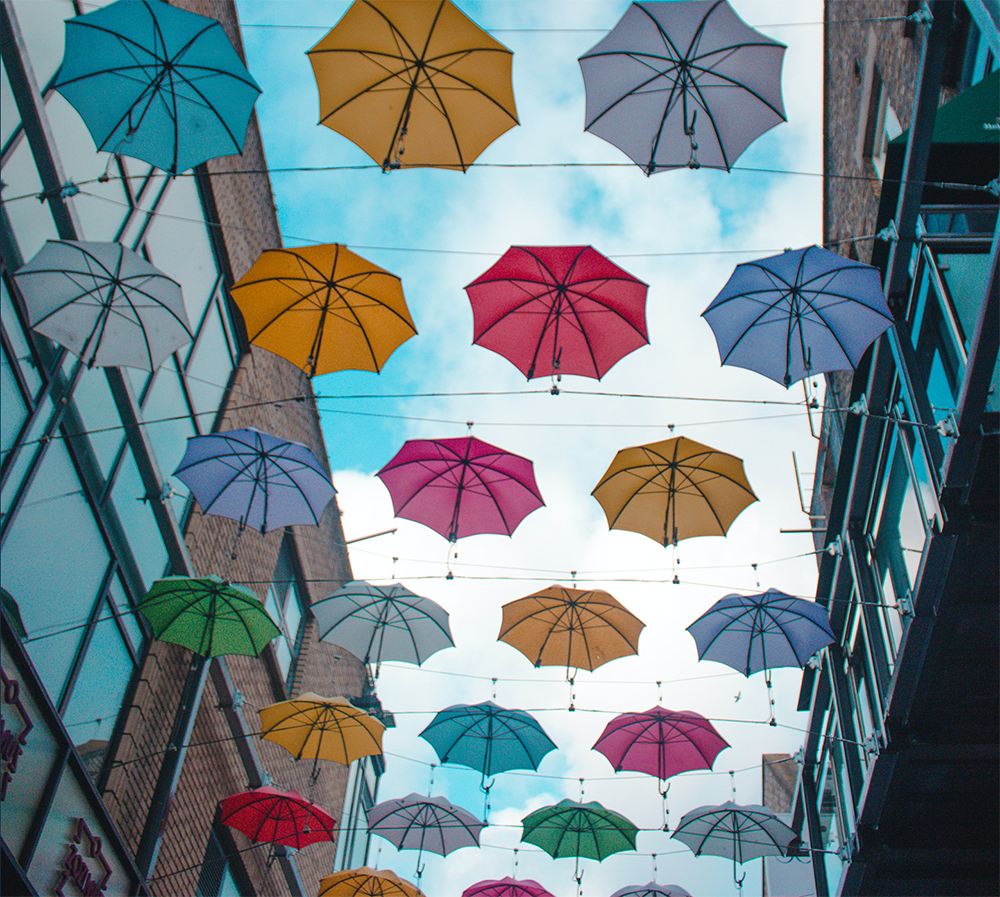
Whether it rains a lot in Ireland is a matter of perspective – to put it as the locals do, sometimes it’s ‘only spitting’, while other times it’s ‘bucketing down’. Dublin is in the least rainy part of Ireland and while there’s ‘some rain’ around 190 days a year, that might be between sunny spells too. It’s no harm to own some rain gear for wet days.
Dublin is near the coast so exposed areas can be windy, and temperatures cool off in the evening, even in summer. Maximum temperatures in July are usually around 71.6°F, while it can get down to 30°F in December and January – don’t expect snow, but is some snowfall every couple of years. Average winter temperatures range between 46°F by day and 37°F at night, while in summer they average between 65°F by day to 52°F at night.
It is easy to get to and around Dublin – there are direct flights from most main airports in North America and many international destinations. Dublin Airport is just 10km from the city center and well served with airport buses. The city center itself is easily walkable and the Dublin Bus network crosses the city. While they don’t always stick to the timetable and sometimes get stuck in traffic, buses run from the city to UCD and out to most suburbs. The DART commuter rail runs north and south along the coast, and the Luas tram network also has two lines — both DART and Luas get crowded at rush hour.
Most public transport runs from around 5am or 5.30am to 11.30pm and there are night buses at weekends. There’s also a city bike- sharing scheme, Dublin Bikes and while cyclists share lanes with road traffic, the city is working on becoming more cycle-friendly.
Whether it rains a lot in Ireland is a matter of perspective – to put it as the locals do, sometimes it’s ‘only spitting’, while other times it’s ‘bucketing down’. Dublin is in the least rainy part of Ireland and while there’s ‘some rain’ around 190 days a year, that might be between sunny spells too. It’s no harm to own some rain gear for wet days.
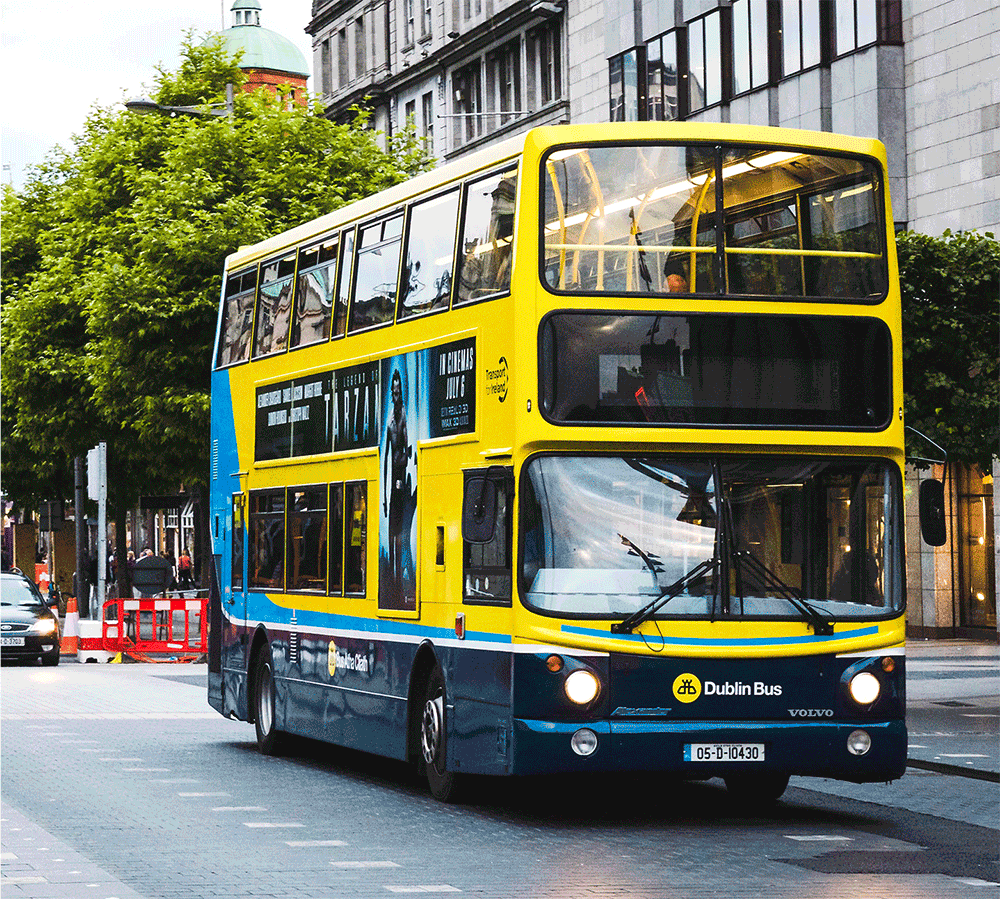
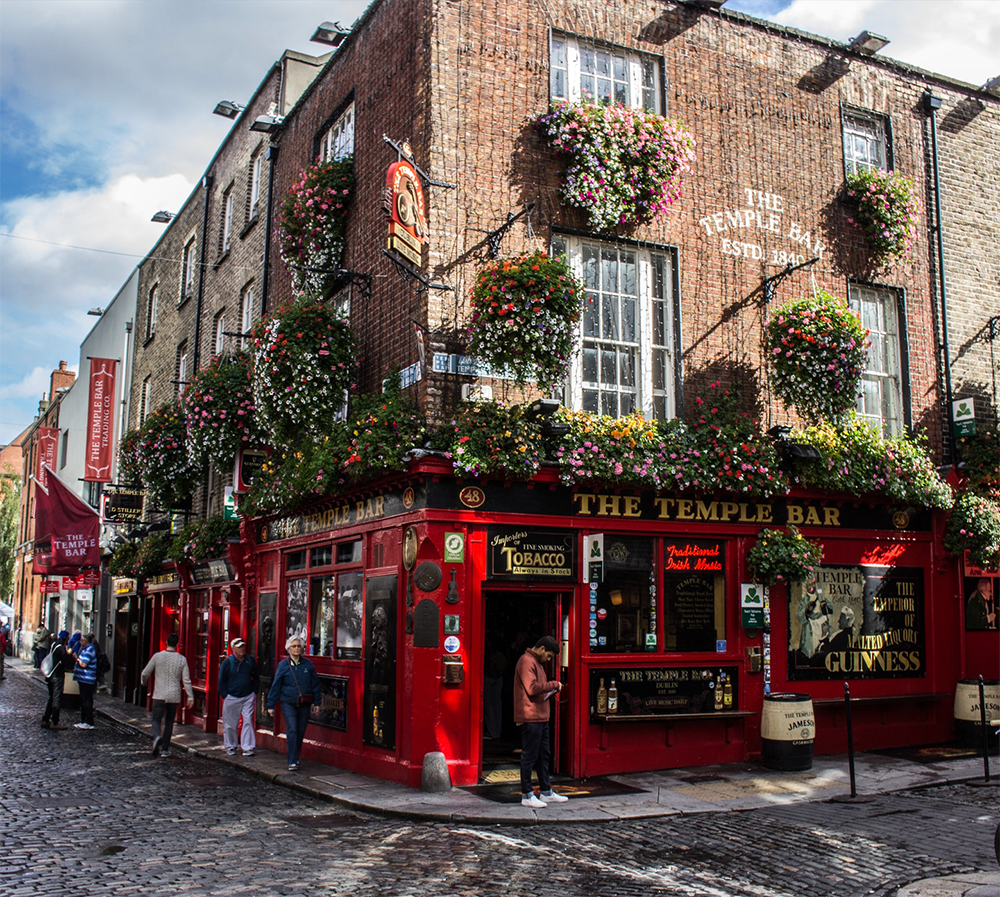
The pub is the cornerstone of Irish nightlife and there are all types, whether it’s old pubs like Kehoe’s and the Long Hall dating from Victorian times with lots of wood, glass and mirrors, or somewhere like Pygmalion at the Powerscourt Townhouse for craft cocktails. Pints of Guinness are popular, or try something from a local craft brewery or whiskey distillery.
Many pubs and clubs especially around Harcourt Street and Camden Street, have special student nights with discounts, usually mid-week. The Pavilion (or ‘Pav’) in Trinity is popular in good weather, with views over the campus greens.
Music is another aspect part of Irish culture and you will find all genres – drop into a traditional Irish music ‘session’ at The Cobblestone, listen to a singer-songwriter night at The International, discover an up and coming band at Whelan’s or catch a DJ set at a club student night. You can see visiting international acts at the 3Arena and the Aviva.
Finally, the city has a diverse range of cuisines – many areas have Chinese, Indian, Italian and Thai restaurants, and you’ll also find Japanese, Brazilian, Polish, Vietnamese, Korean, Middle Eastern and Greek restaurants, especially around the city center.
While Dublin is regarded as a safe city, like in any city, you need to take care of your valuables and there will be some areas to avoid, or avoid late at night.

With the sea and mountains on the city’s doorstep, there is lots to do, whether you want to try sailing, kayaking or paddleboarding on Dublin Bay or hiking or mountainbiking in the Dublin and Wicklow mountains.
To escape for a few hours, take to the cliff walk at Howth, stroll Dun Laoghaire pier or one of the county’s beaches. Sea swimming is popular – and while temperatures remain on the chilly side (a maximum of around 58.8°F in summer), you’ll hear comments about the water being ‘warm today’.
For a long weekend, cities like London, Paris and Amsterdam are just an hour or two by plane and well served by budget airlines Aer Lingus and Ryanair. On a Bank Holiday weekend (with a public holiday on a Monday), it’s popular to leave Dublin on a Friday and return on a Monday evening – but you might love Dublin so much you will decide to stay and explore the city instead.


Grafton Street is one of the city’s main shopping streets, along with cafes, restaurants and galleries. For high street fashion chains, head to Grafton Street, Henry Street or out of town to the Dundrum Town Centre.
For designer labels, try Brown Thomas or for vintage, there are funky stores around Temple Bar. The Powerscourt Townhouse is popular for boutiques and the city has some great independent bookshops.
Before submitting your online application, please fill out the Application Request Form. After we receive your submission, we will write to you within 1 – 2 business days regarding program eligibility, application instructions, admissions requirements, deadlines, and other guidelines.
Find Out HereFollow the application instructions exactly. Take the time to read the instructions provided with your application.
Find Out HereCopyright ©️ 2016–2024
We use cookies on our website to give you the most relevant experience by remembering your preferences and repeat visits. By clicking “Accept”, you consent to the use of ALL the cookies. more information
The cookie settings on this website are set to "allow cookies" to give you the best browsing experience possible. If you continue to use this website without changing your cookie settings or you click "Accept" below then you are consenting to this.